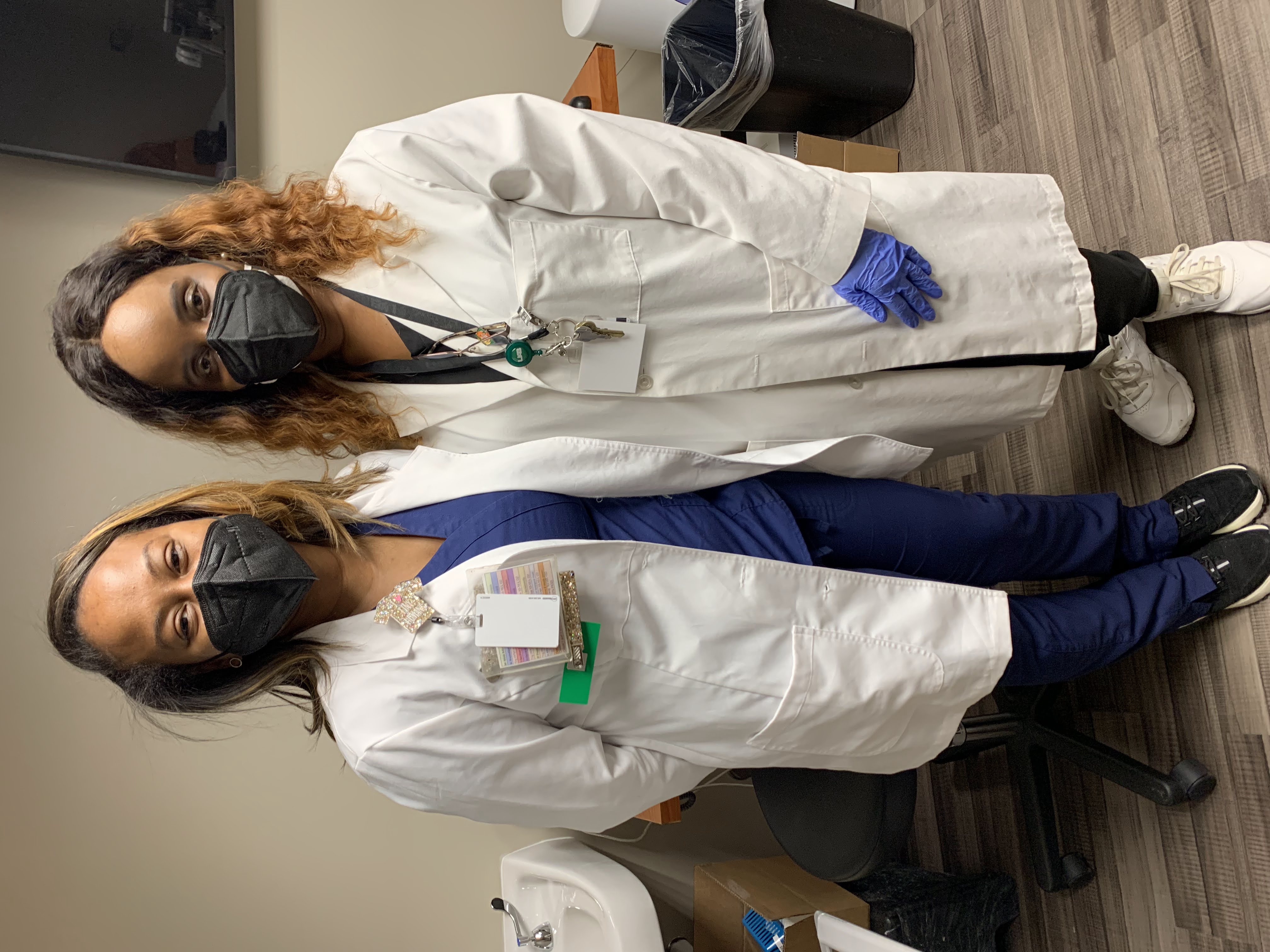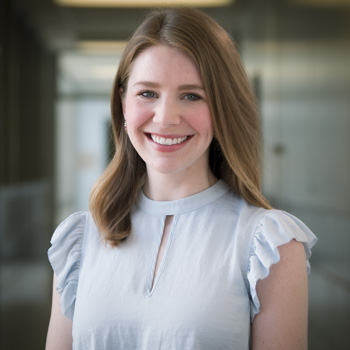The Department of Family and Community Medicine’s UAB Hospital-Highlands and Hoover clinics are starting a partnership with the UAB Evelyn F. McKnight Brain Institute to help patients better understand how lifestyle decisions affect brain health. The Brain Health Initiative will work with participants to prevent cognitive decline and work toward healthier habits. Our communications team was asked to help share about the new program and encourage the community to get involved.
 Program team members Tiffany English, R.N., and Pamela Bowen, Ph.D.
Program team members Tiffany English, R.N., and Pamela Bowen, Ph.D.
Since I came to work at the UAB Heersink School of Medicine, I have learned a lot about working toward a healthier lifestyle from the family medicine providers I interact with on a daily basis. They care about helping patients when they are sick, but they also care about preventing illness and improving quality of life. I know that my habits of drinking more water, walking 30 minutes a day and being more aware of the foods I eat (or don’t eat) are a direct result of their advice and care.
As a communicator in health care, it can be challenging to put yourself in a patient’s shoes. Some of the folks we talk to are facing incredibly difficult situations or the worst parts of their health care journeys. It is important to keep in mind what they are experiencing and what the process is like for them. When we heard about the new brain health program, it seemed like a great opportunity to experience and share the patient side of the story.
The program, led by Principal Investigator Ronald Lazar, Ph.D., professor and the Evelyn F. McKnight endowed chair for learning and memory in aging in the Department of Neurology and director of the Evelyn F. McKnight Brain Institute, is open to any UAB patient who was 18 years old, generally healthy and staying in Birmingham for at least a year. I was a little shocked that I fell into the criteria – I don’t think about brain health much as a young, fairly healthy person – but I decided to give it a try and see what I could learn so that we could share the experience with potential patients.
The program centers around the idea that brain health and cognition can be maintained and improved before an issue or diagnosis arises by introducing a primary care agenda for brain health. Providers hope to encourage and introduce healthy habits such as getting regular exercise, eating a healthy diet and other lifestyle improvements and to remind patients that our brains need regular care and “maintenance measures” just like our heart or lungs.
Here’s how it works.
Arrival and Intake
Because I am already a patient with the Department of Family and Community Medicine, my provider was able to quickly refer me to participate in the program. Any current patient with UAB family medicine who meets the criteria can be referred to the program at no cost.
When I arrived at the clinic to begin the process, I was greeted by Pamela Bowen, Ph.D., CRNP, FNP-BC, BBA, associate professor in the UAB School of Nursing and scientist for the Evelyn K. McKnight Brain Institute, and Tiffany English, a UAB nurse practitioner student.
 Erin Slay-Wilson, M.A.
Erin Slay-Wilson, M.A.
The initial intake lasted about 30 minutes and included questions about my health background, any current issues I was facing and a finger prick to record my cholesterol and glucose levels. I was also weighed and had my blood pressure taken, but many patients will not have to do this if they’ve had an in-person visit within the last year.
When asked about the process of the program, Lazar said the Highlands clinic provided a good platform for the collaborative pilot program.
“This is a pilot study, which means we would like to evaluate this small-scale preliminary program to evaluate the logistics, time, needed resources, challenges, and strengths of the program to improve upon the design of the program before launching a larger project,” said Lazar.
The program team hopes to learn throughout the first year and talk with participants to find out what works and what can be improved, all in hopes of improving the way that individuals see their role in maintaining and promoting brain health.
“The brain is the part of the body that defines us as human, with the ability to function effectively in our everyday world,” noted Lazar. “As we age, there is some decline that is normal, but if left unchecked, then there is little we can do. Most cases of cognitive decline and dementia, however, can be delayed and even prevented if we take charge of how we take care of ourselves. We would like for participants to value and incorporate health promotion strategies into their daily lives.”
Goal Setting
After they collected all of my information, the team calculated what they call a “Brain Care Score,” an estimate of the general health and wellbeing of a person’s brain. Based on this score, they asked me what specific areas I would like to work on to improve my overall health. The team went through ideas like increasing exercise during the week, replacing sugary drinks with more water to control blood sugar levels and getting more sleep.
"Research suggests convincingly that risk factor reduction, such as reducing high blood pressure, and adopting healthy lifestyle behaviors, such as exercise, can decrease the likelihood of cognitive decline,” said Lazar. “This program provides an individualized approach to health promotion. After calculation of the Brain Care Score to determine which risk factors need to be addressed, we allow the participant to take charge of their own well-being by indicating which areas of their health is/are a priority to them.”
I chose to work on improving my anxiety levels by being more regular with journaling (3-5 times per week), getting more rest by beginning my nighttime routine by 10 p.m. each night (and avoiding screens after this time) and engaging with physical activity more regularly by adding 10 reps of weights to my walking routine. (The nurse was kind enough to show me several ways of getting my reps in.)
Follow-Up
The program team will call me in six months to check in and see how I am doing with my goals. There is another research group that will have more frequent calls. They want to measure whether personal choice and supportive accountability can elicit change more quickly or build habit more effectively in patients at all levels of health. Because primary care focuses on prevention and incorporating lifestyle changes to improve health, the program team is excited to work within a primary care setting to learn more about this program’s potential.
“The implications are that working toward better health is a lifelong endeavor, and primary care is the ideal setting to promote this goal,” said Lazar.
The program is open to 100 participants. Talk with your UAB family medicine physician if you are interested in joining the program and working toward a healthier brain and a healthier you.